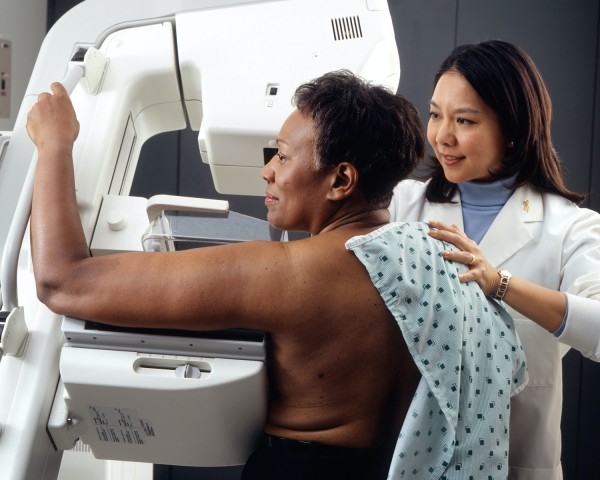Breast Cancer Patient Gets Surprising Benefit from Cleveland Clinic’s Heart-Sparing Radiation Treatment
If Joyce McCain opted not to receive a technologically-advanced form of radiation for her breast cancer treatment, she and her doctors might not have found out until it was too late that she had kidney cancer, too.
65-year-old McCain from Brooklyn, Ohio, said, "They say everything happens for a reason," and that she is very blessed that the doctors discovered it.
When a mammogram identified a mass in McCain's left breast, her doctor at Cleveland Clinic Independence Family Health Center advised that she get a follow-up mammogram.
The said procedure, and an immediate ultrasound, showed that it was possible that she did have cancer in her left breast, and it was confirmed a couple of days after, via a biopsy.
ALSO READ: 32-Year-Old Mom Endures Chemo for Breast Cancer While Pregnant

When a mammogram identified a mass in McCain’s left breast, her doctor at Cleveland Clinic Independence Family Health Center advised that she get a follow-up mammogram.
The Cardiac-Sparing Radiation Therapy
According to Cleveland Clinic, after considering some options, McCain opted for a lumpectomy, a breast-conserving surgery in which Debra Pratt, MD, the surgeon who performed her operation, took out the tumor together with several breast tissue surrounding it.
Typically, Cleveland also said, a lumpectomy requires three weeks of "postoperative radiation" to lessen the risk of reappearance in the breast.
After she discussed her options with her doctor, McCain opted to push through with the radiation treatment, although she was interested in strategies that would shield her heart.
Radiation oncologist Chirag Shah, MD, said McCain was an ideal candidate for "cardiac-sparing radiation therapy," which Cleveland Clinic Cancer Center experts are currently refining.
Dr. Shah explained that women who have undergone radiation, specifically to their left breast, have a possibly "higher rate of cardiac complications down the road.
The doctor added heart-sparing radiation techniques that can decrease the doses of ration that reach the heart from 50 to 75 percent lower than the national standard.
Therefore, Shah elaborated, they have concentrated on perfecting strategies that can lessen long-term side effects while still developing the radiation benefits.
DON'T MISS THIS: US Buys Majority of Redemsivir Global Stock in Hopes of Ensuring COVID-19 Recoveries
Planning for the Radiation
One of the strategies for this therapy is the active breathing control or ABC, which required McCain to breathe in deeply and hold her breath for several seconds while the radiation therapy was being delivered.
Filling the patient's lungs with air separated her heart from her breast and chest wall, creating a physical gap to reduce the dose of radiation that reached her heart.
To plan for McCain's radiation therapy, Dr. Shah, together with his team, performed a simulation through the use of computed tomography or CT scan with and without using the ABC device.
McCain learned how to hold her breath as long as she could through a breathing device attached to her mouth.
Based on the CT scan imaging and determining the location where the tumor was removed, the medical team taking care of McCain was able to carefully plan the proper positioning of the linear accelerator that would accordingly bring the radiation doses with accuracy.
Now in Recovery Phase
While performing the CT scan, the medial team happened to capture an image of one of the patient's kidneys. They noticed a large mass which appeared alarming.
Following additional tests, doctors found out that the mass was cancerous. Fortunately, the tumor was entirely contained within McCain's kidney and was soon removed via surgery.
McCain is now in the recovery stage after the kidney operation and five-days-a-week for three weeks of heart-sparing radiation for breast cancer treatment.
She has returned to work as an auditor manager in the State Michigan Department of Treasury's Ohio office and has also gone back to playing golf, her favorite sport.
IN CASE YOU MISSED IT: Remdesivir Priced from $2,340 to $3,120 per Patient, Way Cheaper Than Estimated, Gilead CEO Says
Check out more news and information on Cancer on MD News Daily.
Oct 19, 2020 12:00 PM EDT





